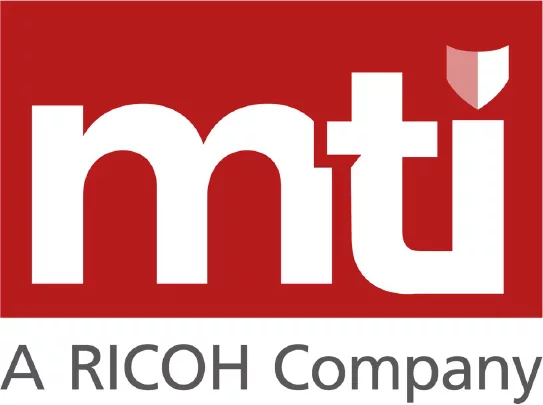Today, we invite you to explore the fascinating realm of Generative AI and its transformative potential across various industries. But first, let me introduce myself – I’m Steve Wiggs, the Hybrid Infrastructure Practice Lead at MTI.
MTI takes immense pride in being one of Dell’s Titanium partners, allowing us to deliver top-notch solutions to our customers. Among the many offerings that Dell provides, our special interest lies in unstructured data solutions. This keen focus on unstructured data led us to the heart of the action at the Dell UDS Partner Summit in Madrid this year, where we uncovered the latest trends and innovations in this dynamic field.
The Rise of Generative AI
One of the resounding themes at the Dell UDS Partner Summit was the rapid ascent of Generative AI. This revolutionary technology is making waves across various industries, and we are here to guide you through this transformative journey.
Generative AI represents the fourth generation of AI, characterised by its ability to create new data or content, including images, videos, music, and text. This capability has immense potential for content creation, art generation, and much more. Simultaneously, reinforcement learning, a subset of Generative AI, is making strides in robotics, enabling robots to manipulate objects and navigate their environments.
The Evolution of AI
Before we delve further into Generative AI, let’s take a quick journey through the evolution of AI:
- Rule-Based Systems: The earliest AI systems mimicked human expertise using predefined rules, often seen in medical diagnosis systems.
- Machine Learning: The next step introduced machine learning, where AI systems learn from data and improve over time. This includes neural networks and decision trees, used in applications like spam filters and recommendation systems.
- Deep Learning: Deep learning, a subset of machine learning, brought about significant advancements in image and speech recognition, as well as natural language processing. OpenAI’s ChatGPT is a notable example.
Dell's Project Helix: A Game-Changing Annoucement
The journey into Generative AI can be complex, but Dell’s Project Helix, first announced at Dell Technology World in May, has now evolved into Dell’s Validated Designs for Generative AI. These designs encompass a complete solution stack of hardware and software, created in partnership with Nvidia. They provide a starter solution for various GenAI applications, streamlining your path into this transformative technology.
One key advantage is the collaboration between Nvidia and Dell AI specialists who can tailor the solution to your precise requirements. This ensures a faster and more efficient integration, accelerating your journey into the world of Generative AI.
A Range of Solution Designs
The solution designs focus on different goals, two of which are:
- Generative AI with Nvidia: A scalable solution that supports a multitude of use cases. It addresses the inferencing challenges of latency, responsiveness, and variable computational demands, helping organisations transform enterprise data into high-value smart outcomes.
- Conversational AI design, developed with Kore.AI: This helps organisations deliver more effective and efficient internal and external customer experiences on voice and digital channels by deploying AI-powered virtual assistants that understand the language used within the organisation.
These solution stacks comprise Dell PowerEdge or VxRail Servers optimised with Nvidia GPUs, connected via high-speed, low-latency Dell PowerSwitch or Nvidia Mellanox switches, and utilising PowerScale File storage systems. Different configurations are available with all the relevant toolsets included, such as Nvidia AI Enterprise software or the NEMO framework for LLMs, or Triton Inference Server.
Data Security with Superna
One of the concerns with the often huge amounts of data, including the valuable results the systems are generating, is how to protect the potential Petabytes of information against attack or theft by Ransomware. If you lose the output of thousands of hours of analysis, it could be disastrous for your business, or if that valuable IP was exfiltrated, you could lose your competitive advantage.
This is where Superna has an excellent solution, which can monitor the user’s network activity and build a picture of normal usage patterns using ML. When an attack is triggered, even when it’s a zero-day attack, it can quickly detect this attack happening and lock out the affected users before too much data is corrupted or encrypted. Progress Flowmon is used to monitor the network and detect erroneous user behaviour, Flowmon interacts with Superna Ransomware Defender, which manages an Air-gapped copy of your valuable file or object data. The Superna GUI allows for fast recovery from automatically generated immutable snapshots – this is far faster to recover from than a backup system could deliver. You are potentially recovering thousands of files or TB of data in a few clicks.
The Superna and Flowmon solution builds on the Immutable snapshot and S3 Object Lock capabilities implemented in the PowerStore and ECS platforms to provide a data-based detection, prevention, and recovery mechanism. It is definitely worth investigating if you think your data is inadequately protected at the moment.
Dell's Elastic Cloud Storage (ECS)
In an era where 90% of new data is unstructured, Dell’s Elastic Cloud Storage (ECS) system is the answer to managing and scaling unstructured data effectively. The ECS object platform is available with dense high-capacity options through to all-flash configurations to match an archive/cyber compliance use case or AI/ML use case, with over 30 Exabytes of object storage shipped to over 15,000 customers, you’ll be in safe hands with the ECS platform.
As the landscape of applications evolves towards microservices and cloud-native solutions, Dell introduces ObjectScale, the software-defined evolution of the ECS system. ObjectScale is well-positioned to cater to the demands of Kubernetes native object storage, enabling seamless growth and scalability.
Explore MTI's Expertise in Dell Solutions
At MTI, we have a rich history of designing, implementing, and providing ongoing support for Dell’s UDS platforms. If you’re looking to harness the power of Dell solutions for your AI/ML or big data projects, we are here to help. Contact us to learn more about how MTI and Dell can be your trusted partners on this exciting journey.
We look forward to helping you realise the possibilities of Generative AI and other innovative solutions.

